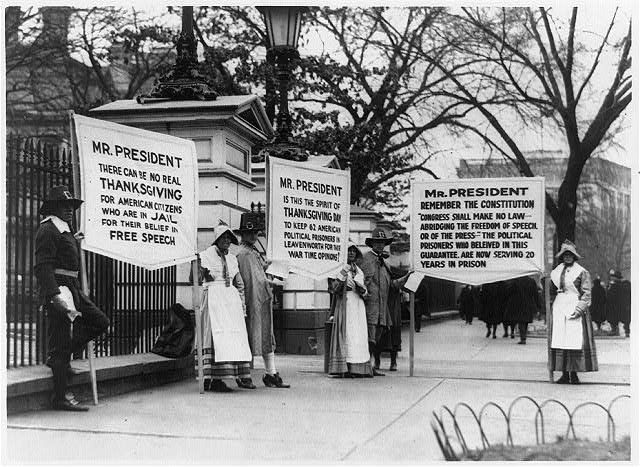The Free Citizens Press represents more than just a publication—it embodies the spirit of open communication and the sharing of ideas without unnecessary barriers. In many ways, it has acted as a bridge between communities, a source of information, and a tool for encouraging thoughtful discussion. For those who value the role of independent reporting, this type of press holds a special place in history.
Origins
The Free Citizens Press had its roots in earlier publications that sought to keep the public informed about local events, political developments, and community matters. Emerging as the successor to the Cisco Weekly Citizen, it was designed to continue the mission of giving residents access to news without heavy political or commercial influence.
Published twice a week, it was more than just a stack of pages—it became a meeting point for people’s thoughts, opinions, and debates. The fact that it continued under this name until August 1935 shows that it had a meaningful run during a period of great social and economic change.
Purpose
The primary aim of the Free Citizens Press was to ensure that individuals had access to reliable and understandable news. Unlike highly commercialized publications, it sought to prioritize content that directly benefited the readers, whether that was local government updates, economic trends, or cultural activities.
It also provided a space for letters, columns, and commentary from citizens themselves, making it more participatory than many other publications of the time. This format encouraged residents to feel they had a direct role in shaping the narrative of their community.
Community Impact
One of the strongest elements of the Free Citizens Press was its ability to unite people. In smaller towns and developing regions, newspapers often served as a shared source of truth. In the days before instant digital communication, such publications played a central role in how residents stayed informed.
By reporting on town meetings, elections, agricultural developments, and public initiatives, the paper created a shared knowledge base that helped people feel more connected. Even when disagreements arose, the shared access to information made discussions more productive.
Independence
Maintaining independence was a crucial part of the Free Citizens Press. Its editorial choices leaned towards public interest rather than appeasing sponsors or political groups. While complete neutrality in reporting is difficult, the publication aimed to avoid overly biased narratives.
This was especially important during the early 20th century when the press landscape could be heavily influenced by political parties or large business interests. The Free Citizens Press stood out because it preserved a level of editorial freedom that allowed it to publish stories others might have ignored.
Style of Reporting
The writing style of the Free Citizens Press was direct and clear. News was presented without overly complicated language, ensuring that all readers, regardless of their education level, could understand the content.
This accessibility made it possible for farmers, shopkeepers, teachers, and local officials alike to stay updated without needing to interpret jargon. The simplicity of its language did not reduce its credibility—it strengthened it, because the news felt closer to the lives of its readers.
Topics Covered
While political news and community developments formed a large part of its content, the Free Citizens Press also covered cultural, social, and human-interest stories. These included:
- Local events: fairs, school activities, and seasonal celebrations.
- Economic reports: updates on market prices, agriculture yields, and trade.
- Public health: advice on seasonal illnesses and sanitation.
- Letters to the editor: giving ordinary people a way to voice concerns or celebrate successes.
- Historical pieces: articles looking back on the town’s growth and changes.
This balance of topics kept the publication from feeling overly serious or narrow in focus.
Relationship with Readers
A newspaper’s value often comes from how well it engages with its audience. The Free Citizens Press built trust by consistently publishing accurate reports and allowing residents to share their perspectives. Readers felt heard, and that sense of inclusion made them more loyal to the publication.
By acting as both a news source and a platform for dialogue, it blurred the line between journalist and reader, creating a community-driven model of reporting.
Challenges Faced
Like many independent publications, the Free Citizens Press faced challenges. Printing costs, distribution logistics, and maintaining a consistent flow of quality content required effort and resources.
Additionally, in times of economic hardship—such as during the Great Depression—advertising revenue and subscriptions could decline. Keeping a publication afloat without compromising its editorial principles was a constant balancing act.
Transition and Closure
The publication’s run under the Free Citizens Press name lasted until August 1935. Its closure or transformation into another format reflected the changing media landscape. The growth of other news sources, shifts in local population, and financial pressures likely played a role.
However, the legacy it left behind was not erased. Many who read it remembered it as a trusted companion during an important chapter in their community’s history.
Lessons from the Free Citizens Press
Even though the Free Citizens Press belongs to the past, the principles it stood for remain relevant today. In an era of fast-paced, digital-first journalism, the values of clarity, community focus, and independence are still worth preserving.
Modern local publications can take inspiration from its dedication to serving readers first and its willingness to include diverse voices. The model may change, but the spirit of free, citizen-centered reporting can still thrive.
Continuing the Spirit
Today, digital platforms, community blogs, and local online news sites carry forward the tradition in new ways. While the medium has shifted from print to screen, the idea that citizens deserve accessible, unbiased information is timeless.
The Free Citizens Press may no longer be on newsstands, but its principles live on in every effort to keep communities informed, connected, and engaged.
